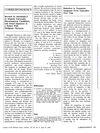 16 citations,
June 2021 in “Journal of Dermatological Treatment”
16 citations,
June 2021 in “Journal of Dermatological Treatment” Minoxidil effectively treats hair loss, especially androgenetic alopecia, but needs more research for better understanding.
 37 citations,
May 2016 in “Deutsches Arzteblatt International”
37 citations,
May 2016 in “Deutsches Arzteblatt International” Hair loss requires customized treatments based on its various causes and types.
[object Object] 20 citations,
December 2021 in “Plants” Tamarix aphylla may be effective for various medical conditions, but more research is needed to confirm its safety and effectiveness.
 2 citations,
February 2023 in “BMC endocrine disorders”
2 citations,
February 2023 in “BMC endocrine disorders” Curcumin improved some metabolic factors in women with PCOS but did not affect cholesterol, insulin, or testosterone levels.
 November 2024 in “Journal of Cosmetic Dermatology”
November 2024 in “Journal of Cosmetic Dermatology” The hair serum reduced hair loss and improved hair quality in women.
 270 citations,
March 2012 in “Dermatologic Surgery”
270 citations,
March 2012 in “Dermatologic Surgery” Platelet-rich plasma can potentially promote hair growth by stimulating cell growth and increasing certain proteins.
 29 citations,
February 2018 in “Genetics research international”
29 citations,
February 2018 in “Genetics research international” Certain genetic variations are linked to increased androgen levels in PCOS, but more research is needed to understand these connections fully.
 67 citations,
July 2016 in “Reviews in Endocrine and Metabolic Disorders”
67 citations,
July 2016 in “Reviews in Endocrine and Metabolic Disorders” Stress can worsen skin conditions by affecting hormone levels and immune response.
 64 citations,
July 2016 in “Cold Spring Harbor Perspectives in Medicine”
64 citations,
July 2016 in “Cold Spring Harbor Perspectives in Medicine” The p53 protein has complex, sometimes contradictory functions, including tumor suppression and promoting cell survival.
 49 citations,
November 1992 in “Archives of dermatology”
49 citations,
November 1992 in “Archives of dermatology” Different treatments for alopecia areata have varying success rates and side effects; intralesional steroids are most effective.
 July 2023 in “Pharmacognosy Magazine”
July 2023 in “Pharmacognosy Magazine” Cerasus serrulata flower extracts have strong antibacterial and antioxidant effects and may help prevent hair loss.
42 citations,
July 2013 in “Gene” IL-4 gene variation may increase the risk of alopecia areata in Turkish people.
 October 2024 in “South Eastern European Journal of Public Health”
October 2024 in “South Eastern European Journal of Public Health” A 3-month treatment improved PCOS symptoms and reduced certain immune proteins.
Higher levels of certain proteins in hair loss areas may help understand and treat hair loss.
 October 2021 in “Dermatology Reports”
October 2021 in “Dermatology Reports” Higher IL-17A levels indicate more severe alopecia areata.
 16 citations,
January 2018 in “International Journal of Trichology”
16 citations,
January 2018 in “International Journal of Trichology” Minoxidil may help treat hair loss by reducing inflammation-related gene activity in skin cells.
 7 citations,
February 2023 in “Inflammation and Regeneration”
7 citations,
February 2023 in “Inflammation and Regeneration” The protein interleukin-1 alpha helps regenerate hair follicles and increase stem cell growth in mice.
 3 citations,
May 2020 in “JAAD Case Reports”
3 citations,
May 2020 in “JAAD Case Reports” Two patients with psoriasis grew extra hair after using certain psoriasis medications.
 1 citations,
July 2012 in “Nasza Dermatologia Online”
1 citations,
July 2012 in “Nasza Dermatologia Online” IL-1α levels are higher in alopecia areata patients, suggesting a role in the disease.
 9 citations,
April 1993 in “Journal of the National Cancer Institute”
9 citations,
April 1993 in “Journal of the National Cancer Institute” Interleukin-2 treatment improved hair growth, sexual function, and reduced fungal infection in a patient with thymoma-related symptoms.
 September 2024 in “South Eastern European Journal of Public Health”
September 2024 in “South Eastern European Journal of Public Health” Treatment improved PCOS symptoms and reduced BMI and certain immune factors.

Ajwain seed extract improved skin healing and hair growth in a mouse skin irritation model.
 1 citations,
February 2022 in “Experimental Dermatology”
1 citations,
February 2022 in “Experimental Dermatology” Certain proteins are found at higher levels in balding areas compared to non-balding areas, suggesting a link to hair loss. This could be useful for diagnosing and treating hair loss.
March 2020 in “The Egyptian Journal of Histology” Topical olive oil protects mice skin from harmful electromagnetic radiation.
 July 2016 in “Cancer Research”
July 2016 in “Cancer Research” A topical lotion helped manage hair loss from chemotherapy by affecting cell death, inflammation, and collagen, with no side effects.
 9 citations,
January 2018 in “Acta dermato-venereologica”
9 citations,
January 2018 in “Acta dermato-venereologica” A substance called poly(I:C) increases a protein called carbonic anhydrase II in skin cells, which might help with skin defense and healing.
14 citations,
July 2021 in “Anais brasileiros de dermatologia/Anais Brasileiros de Dermatologia” Interleukin levels are higher in alopecia areata patients but don't predict disease severity or duration.
 1 citations,
October 2023 in “Clinical, cosmetic and investigational dermatology”
1 citations,
October 2023 in “Clinical, cosmetic and investigational dermatology” Tofacitinib improved hair loss and skin symptoms in a patient after secukinumab caused hair loss.
 July 2022 in “Journal of Investigative Dermatology”
July 2022 in “Journal of Investigative Dermatology” IL-15 helps maintain hair growth and protects the immune status of hair follicles.
[object Object] Melatonin reduced oxidative damage, inflammation, and protected hair cells in scalded rats.
























